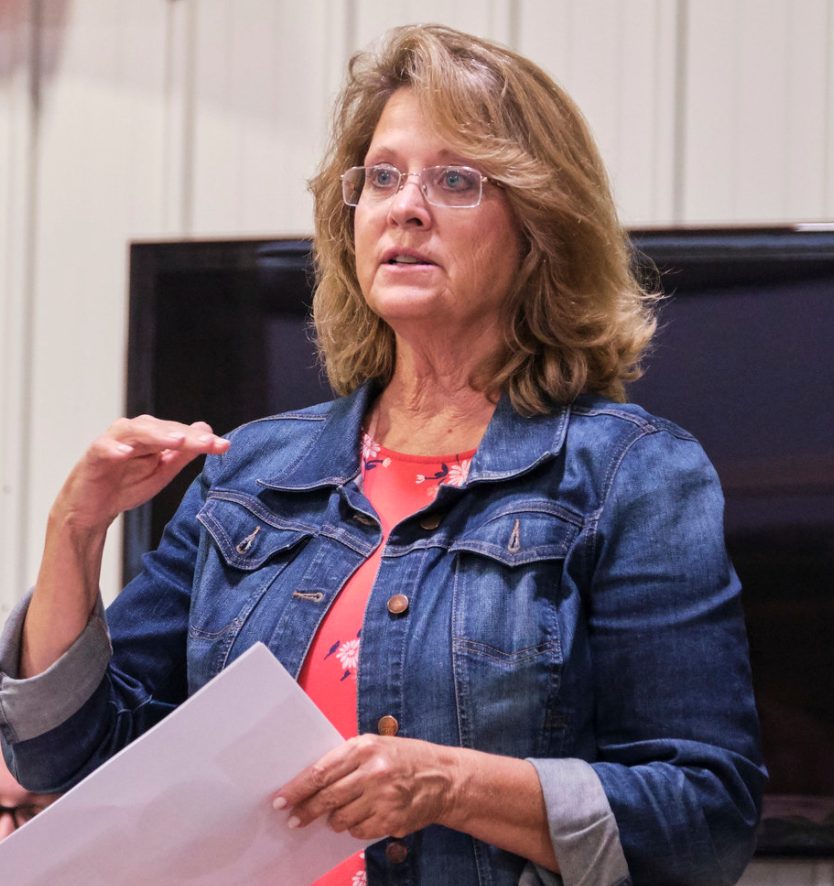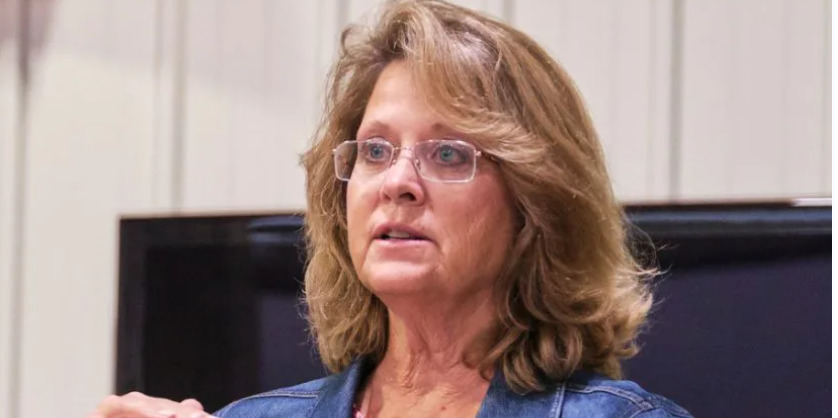During a wide-ranging interview with conservative pundit Jon Caldara, Colorado congressional candidate Barb Kirkmeyer said she’d reduce federal spending, in part, by transforming Medicaid into a block grant system, a move that could lead to cuts for low-income Coloradans who rely on the federal-state health care program, say experts.
“I think the other thing we could look at again the Medicaid situation. You know, I’ve been talking with folks about maybe we put that into a block grant, same as what we did with temporary aid for needy families, the Welfare reform stuff, and even with our child welfare, and looking at our child care programs as well,” Kirkmeyer told Caldara. “Looking at block grants. And then having states say, ‘This is what’s best to serve our constituents.’ You know, ‘Here’s the block of money.’ That’s exactly what happened back in late ’90s. Here’s the block of money that comes to the state. States, you still have to match. You don’t get to drop your match just because we are block-granting it to you. But we are going to give you more flexibility to meet the needs of the residents of your state.

“And I think that’s what we need to do with Medicaid.”
In her conversation with Caldara, Kirkmeyer first brought up her Medicaid proposal in response to Caldara’s question (at 18 min 12 sec) about what “on the federal level we should spend less on.”
“I think we need to look at the entitlement programs and get a handle on them,” replied Kirkmeyer. “… I think we need to look at the whole Medicaid situation.”
Converting Medicaid to a block-grant program is a longstanding goal of conservatives and has been denounced by Medicaid proponents as a stealth way to cut the program.
“Block grants are just code for cuts,” said Adam Fox of the Colorado Consumer Health Initiative (CCHI), when asked by the Colorado Times Recorder about Kirkmeyer’s proposal. “We saw what would have happened if efforts to repeal the ACA would have been successful, because they would have block granted Medicaid and forced devastating cuts to eligibility and the services available. Block grants are just a way to eviscerate the benefits Coloradans need.”
The primary reason block grants would likely result in cuts for state Medicaid spending is that the Medicaid program, as currently designed, guarantees coverage to all eligible individuals. The program’s funds are not limited and can respond to “fluctuating need; eligibility criteria can be tightened (consistent with federal standards), but coverage cannot be rationed among eligible people on a first-come, first-serve basis,” as explained in a Kaiser Family Foundation report. Block grants, “typically limit the number of people served through priority lists, waiting periods, and by simply closing down enrollment. Individuals generally have no federal right to the services financed through the block grant,” states the report.
It’s not clear how turning Medicaid into a block grant program would impact Obamacare, which was built, in part, on expanding Medicaid. In any event, Kirkmeyer has said American has moved beyond Obamacare.
Elsewhere in the 41-minute interview, Kirkmeyer repeated her belief that the issue of whether women have a right to an abortion is a “settled question,” in Colorado, despite her own ongoing advocacy to rescind a Colorado’s law enshrining the right to an abortion in state law — and her work over her career to ban abortion here. Presumably, she does not think she’s wasting her time, or she wouldn’t be fighting to stop abortion here, but her campaign didn’t respond to a request for comment.
Despite her history as an anti-choice activist and her support for the overturn of Roe v. Wade, Kirkmeyer told Caldara she didn’t know how she’d vote in Congress on legislation to establish federal protection for the right to an abortion in states.
Caldara: “There will be bills to protect women in other states [where the procedure is banned]. There will try to be some sort of federal protection. You’re going to vote on that. How are you going to vote?”
Kirkmeyer: “I don’t know. I’ll have to see the legislation. I mean, I’ve been in the state legislature now for two years. I’m one of those people that — I do go through and try to read the bills. And I know that’s going to be difficult at the federal level, at least given what’s happened, especially with the Democrats.”
Asked about Second Amendment issues by Caldara, Kirkmeyer criticized gun-ree zones and suggested a program to “harden our school system.”
On immigration, she told Caldara that border security “means we need to build the wall and secure our border and have an understanding of who’s crossing that border.”
Kirkmeyer declined to tell Caldara whether she’d expand the number immigrants allowed to enter the U.S. legally, even though she said members of her own family were once legal immigrants.
Caldara quizzed Kirkmeyer about her support for a proposal to have Weld County withdraw from Colorado:
Caldara: The idea [secession] made a lot of national news. A lot of people snickered at it. I was intrigued by it. If I recall, you didn’t push it you asked the people.
Kirkmeyer: That’s correct.
Caldara: What did the people say?
Kirkmeyer: In my commissioner district they said yes, but in our county they said no. That was in 2013 and remember the major flooding that we had as well. So, i think that just kind of changed things around and kind of you know we lost a little bit of momentum there. There was just so much frustration that you weren’t being listened to.”
Kirkmeyer’s comment that “we lost a little bit of momentum there” due to the floods — and presumably the need for state assistance that would not be available to the proposed state of Weld — runs counter to her statements that succession effort was simply an expression of frustration.
Kirkmeyer, who’s currently a state senator, faces Democratic state Rep. Yadira Caraveo, who is also a medical doctor.
The two are vying to represent the 8th Congressional District, which lies mostly north of Denver. The district was assigned to Colorado after the 2020 Census, and it’s expected to be among the most competitive races in November.




